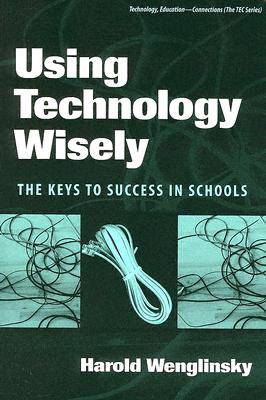
- Retrait gratuit dans votre magasin Club
- 7.000.000 titres dans notre catalogue
- Payer en toute sécurité
- Toujours un magasin près de chez vous
- Retrait gratuit dans votre magasin Club
- 7.000.000 titres dans notre catalogue
- Payer en toute sécurité
- Toujours un magasin près de chez vous
Description
In this book, for the first time, national data is used to measure technology's effectiveness on student academic performance in three subjects--mathematics, science, and reading. To uncover key implications for policy and practice, the author links the test scores of more than 40,000 students who took the National Assessment of Educational Progress with reports by their teachers of various aspects of technology use.
Features:
- The use of real data to show which practices are most prevalent and which are most effective in the K-12 classroom.
- A nontechnical presentation of the results of the only studies to relate aspects of technology use to student test scores.
- Case studies of traditionalist and constructivist uses of technology to determine which approach raises test scores the most, with and without technology.
- A summary with implications of what can be learned from the numbers, including suggestions for policymakers and practitioners.
Spécifications
Parties prenantes
- Auteur(s) :
- Editeur:
Contenu
- Nombre de pages :
- 112
- Langue:
- Anglais
- Collection :
Caractéristiques
- EAN:
- 9780807745830
- Date de parution :
- 25-04-05
- Format:
- Livre broché
- Format numérique:
- Trade paperback (VS)
- Dimensions :
- 159 mm x 232 mm
- Poids :
- 167 g







